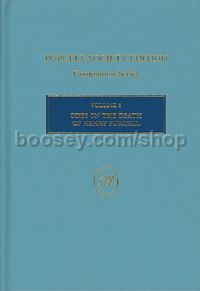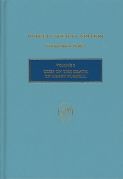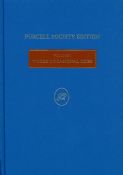Odes on the Death of Henry Purcell (score)
Odes on the Death of Henry Purcell (score)
* Estimated price converted from UK retail price
An extraordinary acknowledgement of the esteem with which the composer was regarded in his lifetime, the three surviving odes on the death of Henry Purcell are also in themselves among the finest works by his English contemporaries. John Blow's extended elegy 'Mark how the lark and linnet sing', which sets a poem by Dryden, modestly scored for two voices, two recorders and continuo, is a masterpiece displaying both the contrapuntal skill which Blow had taught Purcell and the florid declamatory style which Purcell had brought to perfection in such numbers as ''Tis Nature's voice' in Hail! bright Cecilia. Henry Hall's 'Yes my Aminta', laid out for similar forces, is an eloquent and finely crafted pastoral dialogue in the pathetic style, with words probably written by the composer himself. Grandest in conception is 'Come, come along for a dance and a song', by Jeremiah Clarke. Setting a conventional pastoral elegy penned by an unknown hand, it marshals three solo voices, chorus and full baroque orchestra in a sequence of contrasting movements – including both the song and the dance to which the title refers – which together form a lament at once arresting and poignant. The three works have not hitherto been presented together, and the Clarke appears for the first time in a modern critical edition – together with Godfrey Finger’s hitherto unpublished 'Farewell' Suite in G minor, probably from his own lost ode on Purcell's death.







